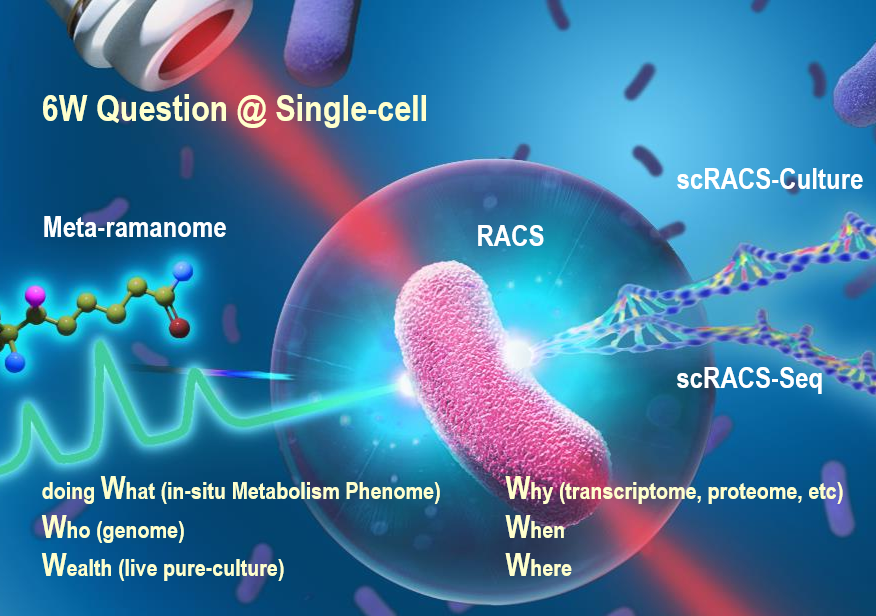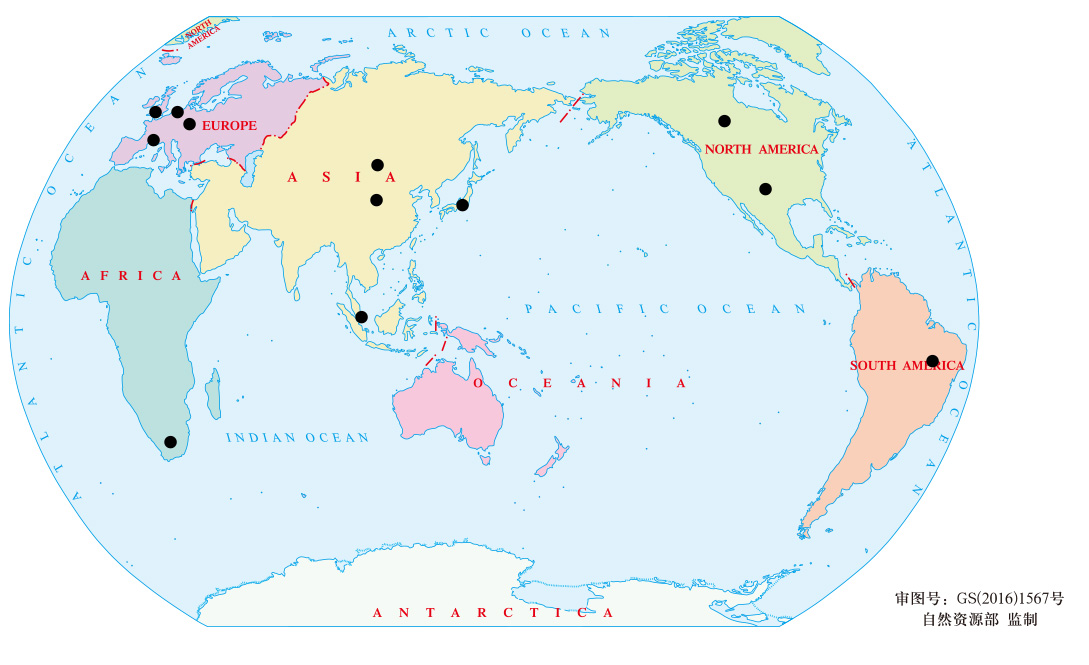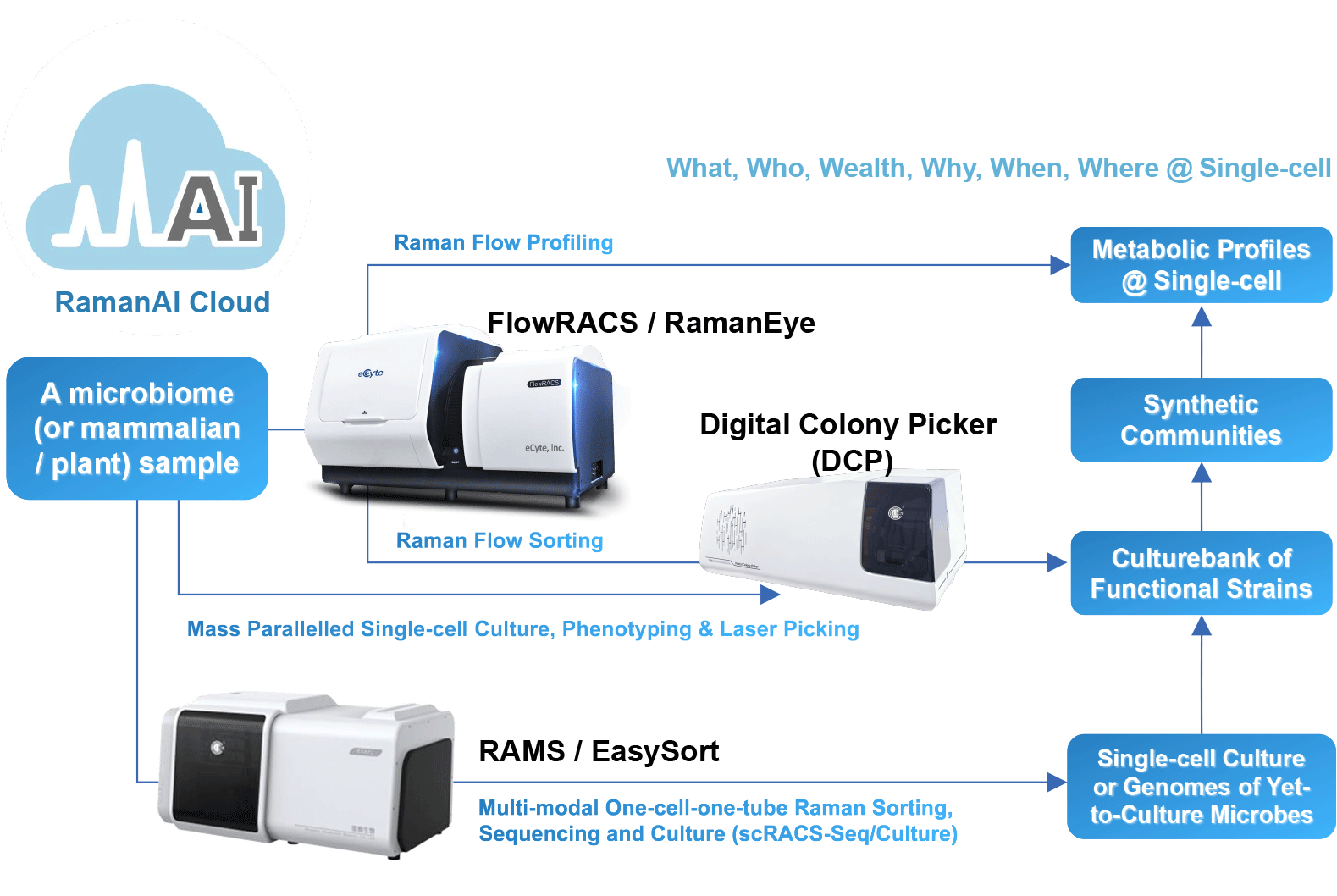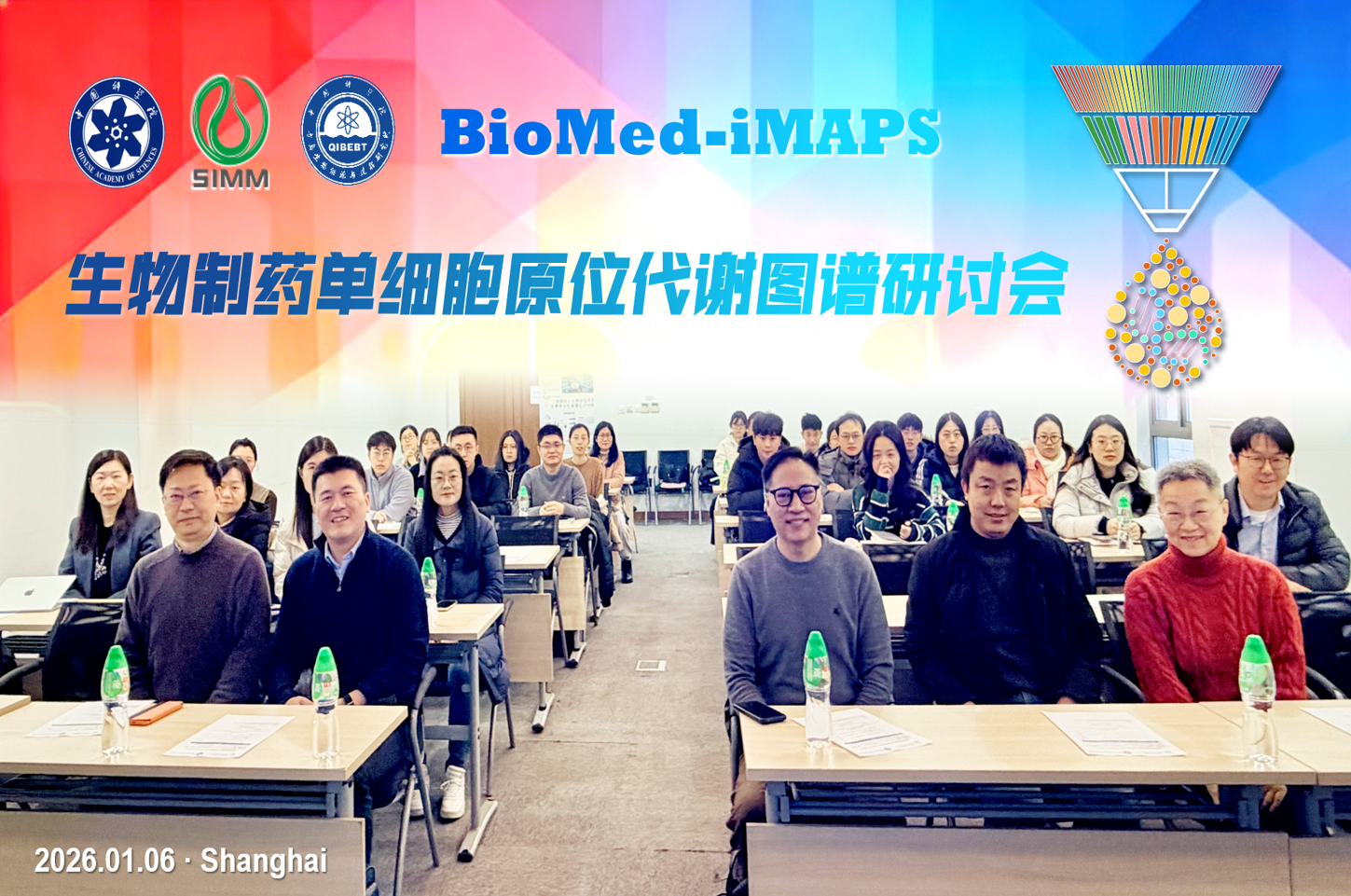
What is iMAPS?
Having thrived on Earth for 3.8 billion years, microbes are the invisible architects of life — the unsung heroes that sustain the health of humans, animals, plants, and ecosystems. They hold the keys to solving society's greatest challenges, such as global warming, antimicrobial resistance, environmental pollutions, malnutrition and hunger. However, less than 1% of the microbes in nature has been explored or utilized, due to the inability to monitor their in-situ metabolic functions or to mine live microbes of target function anytime and anywhere.
To tackle these long-standing challenges, we have established the iMAPS (in-situ Metabolic Atlas Projects @ Single-cell) Consortium, a global team of universities, research institutions, companies, and government agencies, to establish a distributed network of iMAPS facilities. In the iMAPS Network, each node serves as a "metabolic sensor, functional-strain miner, and ecological remediator" of microbiomes for a particular scientific field or geographic area, so as to together understand, preserve and sustainably explore the power of microbiomes on Earth.
By integrating metaramanomics technologies, Al-powered data systems, and a decentralized international network of local resources, iMAPS will enable real-time, label-free profiling, mining, and deployment of metabolic activities from microbiomes across human, animal, plant, and environmental ecosystems. From discovery to deployment, iMAPS aims to accelerate the translation of microbiome science into locally deployable yet globally coordinated solutions for global warming, health, agriculture, biomanufacturing, and ecosystem restoration.
Global Network
10+ Countries 60+ Institutions 5 Research Areas



























University of California San Diego (UC San Diego)
Partner
Environment
University of Hawaiʻi (UH)
Partner
Biomanufacturing / SynBio
Washington University in St. Louis (WashU)
Partner
Nutrition & Health
Antarctic Zhongshan Station
Partner
Environment
Beijing University of Technology
Partner
Biomanufacturing / SynBio
China Agricultural University
Partner
Agriculture
Chinese Center for Disease Control and Prevention (China CDC)
Partner
Public Health & Medicine
COFCO Nutrition and Health Research Institute
Partner
Nutrition & Health
Institute of Agricultural Resources and Regional Planning, Chinese Academy of Agricultural Sciences
Partner
Agriculture
Institute of Botany, the Chinese Academy of Sciences
Partner
Agriculture
Institute of Medicinal Biotechnology, Chinese Academy of Medical Sciences & Peking Union Medical College
Partner
Public Health & Medicine
Institute of Microbiology, Chinese Academy of Sciences
Partner
Nutrition & Health
National Food and Strategic Reserves Administration
Partner
Biomanufacturing / SynBio
National Institute of Metrology, China
Partner
Public Health & Medicine
Research Center for Eco-Environmental Sciences, Chinese Academy of Sciences
Partner
Environment
Sinopec Group
Partner
Biomanufacturing / SynBio
The Procter & Gamble Company
Partner
Nutrition & Health
Institute of Urban Environment, Chinese Academy of Sciences
Partner
Environment
Third Institute of Oceanography, Ministry of Natural Resources
Partner
Environment
Xiamen University
Partner
Environment
National Biomanufacturing Industry Innovation Center
Partner
Biomanufacturing / SynBio
Shenzhen Institutes of Advanced Technology, Chinese Academy of Sciences
Partner
Biomanufacturing / SynBio
Shenzhen University
Partner
Biomanufacturing / SynBio
Southern Medical University
Partner
Nutrition & Health
Southern University of Science and Technology
Partner
Nutrition & Health
South China University of Technology
Partner
Biomanufacturing / SynBio
Kweichow Moutai Group
Partner
Biomanufacturing / SynBio
Hainan University
Partner
Nutrition & Health
The University of Hong Kong
Partner
Nutrition & Health
CABIO Biotech (Wuhan) Co., Ltd.
Partner
Biomanufacturing / SynBio
Huazhong Agricultural University
Partner
Agriculture
Institute of Hydrobiology, Chinese Academy of Sciences
Partner
Environment
Oil Crops Research Institute, Chinese Academy of Agricultural Sciences
Partner
Agriculture
South-Central Minzu University
Partner
Public Health & Medicine
Zymomics Biotechnology Co., Ltd.
Partner
Biomanufacturing / SynBio
Inner Mongolia Agricultural University
Partner
Nutrition & Health
Jiangnan University
Partner
Biomanufacturing / SynBio
Northeast Institute of Geography and Agroecology, Chinese Academy of Sciences
Partner
Agriculture
University of Macau
Partner
Nutrition & Health
Northwest A&F University
Partner
Agriculture
Fudan University
Partner
Nutrition & Health
Shanghai Institute of Materia Medica, Chinese Academy of Sciences
Partner
Public Health & Medicine
Shanghai Jiao Tong University
Partner
Public Health & Medicine
Ocean University of China
Partner
Environment
Qingdao Institute of Bioenergy and Bioprocess Technology, Chinese Academy of Sciences
Partner
Biomanufacturing / SynBio
Shandong Normal University
Partner
Environment
University of Health and Rehabilitation Sciences
Partner
Nutrition & Health
Biogas Institute of Ministry of Agriculture and Rural Affairs
Partner
Environment
West China Hospital / Hospital of Stomatology Sichuan University
Partner
Public Health & Medicine
Tianjin Institute of Industrial Biotechnology, Chinese Academy of Sciences
Partner
Biomanufacturing / SynBio
Tianjin University of Science and Technology
Partner
Biomanufacturing / SynBio
Kunming Institute of Zoology, Chinese Academy of Sciences
Partner
Public Health & Medicine
Westlake University
Partner
Environment
Zhejiang University
Partner
Environment
Nanyang Technological University (NTU)
Partner
Nutrition & Health
National University of Singapore (NUS)
Partner
Environment
CEA Cadarache Centre (CEA)
Partner
Biomanufacturing / SynBio
Cordeliers Research Center (CRC)
Partner
Nutrition & Health
French National Research Institute for Agriculture, Food and Environment (INRAE)
Partner
Agriculture
Gustave Roussy (GR)
Partner
Nutrition & Health
The Metaramanome Platform

News & Events
-
BioMed-iMAPS Workshop Highlights Metaramanomics Platform for Advancing Biopharmaceuticals and Cell Resource Mining
-
IGA Provided Training on Single-cell Metabolic Mining of Black-Soils through the iMAPS Initiative
-
Advanced Training Course on iMAPS Initiative for Autotrophic Microbiome Mining



